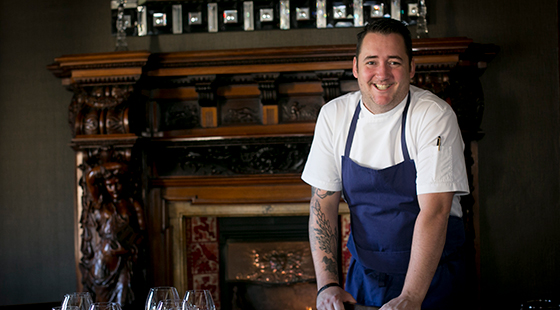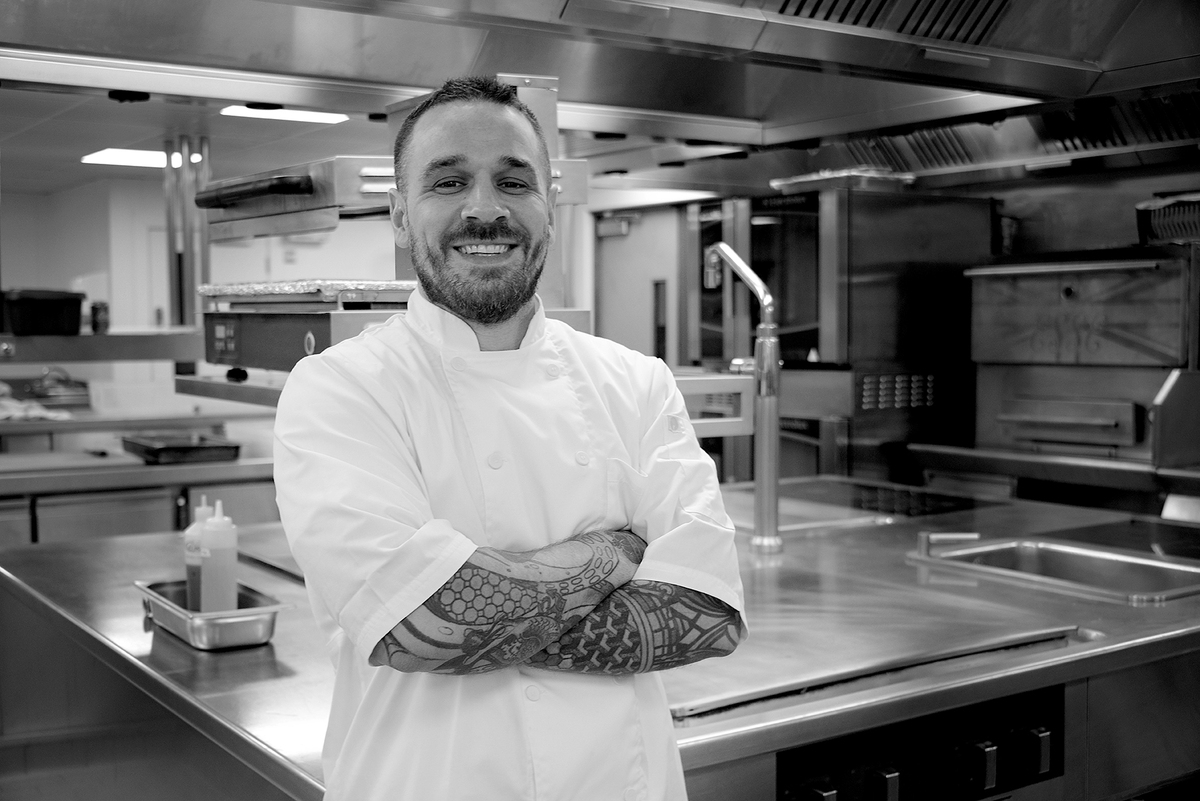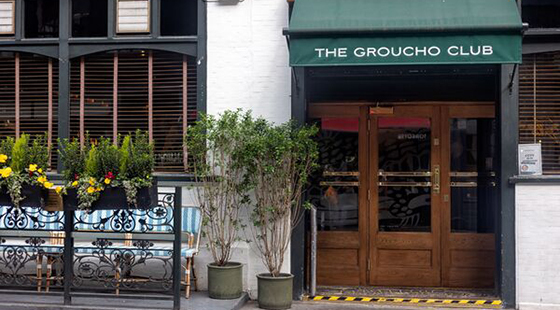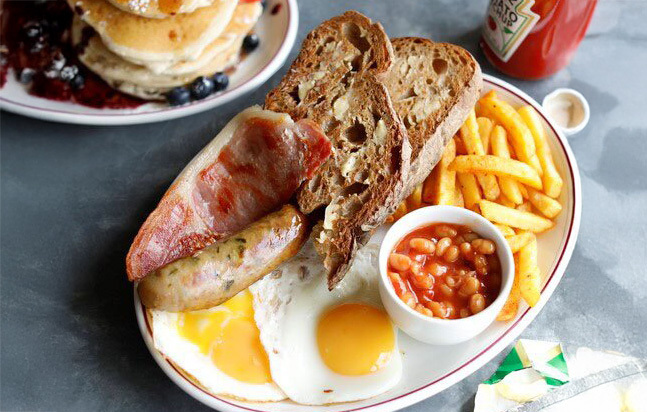Is this the real hospitality industry?
The image of the bullying, shouting chef snorting coke in the cold store is not one that many working in hospitality today would recognise, but it has come back to life in a recent article in The Guardian about the state of the industry. Amanda Afiya asked hospitality leaders what they thought about the article: regrettable truth or clickbait cliché?
A newspaper article that published personal accounts of debauchery, bullying, excessive hours and sexism in hospitality businesses does not fairly represent the industry and involves only a "tiny minority".
That's according to industry leaders who have united in response to a feature in The Guardian on 18 March, which criticises the sector for its treatment of employees.
The article, which referenced misappropriation of tips and service charge and a rampant drug culture, relies on the anonymous testimony of current and former hospitality workers. "At one staff party," one contributor claims, "the general manager was selling coke to staff and taking the money out of their wages." The piece encourages others to come forward and share their experiences.
However, figures from across the industry expressed their concern to The Caterer that the report was an unfair representation of a sector that generates three million jobs and is the UK's fourth largest employer.
Ufi Ibrahim, chief executive of the British Hospitality Association, commented: "We obviously cannot condone any unacceptable behaviour, but we should not allow the alleged activities of a tiny minority to be regarded as the norm when it so clearly is not. We urge everyone to work towards further improving our industry's image so that even more people recognise it as an attractive career option with fantastic opportunities."
Peter Ducker, chief executive of the Institute of Hospitality (IOH), said he found the article depressing: "I simply do not recognise the industry portrayed. Hospitality has its challenges, as does every other walk of life and sector of the community, in dealing with the problems of drugs. I believe that we deal with it as well as any, with support charities, helplines and a great awareness. The stories of violent chefs and these other caricatures just read like a recital of urban myths."
The Guardian.
âIâve read Kitchen Confidential [by chef Anthony Bourdain] â" in fact, itâs one of my favourite books â" but I felt sad when I read this article. I have never worked with anyone who has tolerated any of these things, and I would happily invite anyone to spend a day in my kitchen, unannounced, and they will not witness any shouting or bullying.â
Ducker, though, was willing to concede that in an industry as large as hospitality, it was inevitable that there are âbad applesâ. He said: âAll I know that, in my 40-year career, I have met many, many more chefs who take great pride in helping develop their protégés, in the good order of their kitchen, than those who are foul-mouthed, pork belly-throwing maniacs. We must all be proud of our industry and champion its worth as an essential part of the very fabric of our society, and pay tribute to the dedicated men and women who nourish and serve us every day â" at work, when we travel, when we celebrate, are at school or in hospital.â
Unwanted opinion As chief executive of Pride of Britain, Peter Hancock believes there is no excuse for bullying, intimidation or other exploitation of staff. He said that, in his long experience in the industry, stories similar to the accounts published in The Guardian were âvery rareâ.
âHospitality businesses succeed when they have happy customers, and to achieve that one must have a happy team. The owners and managers I have known, during my long years as a general manager, then as a guide publisher, and for the past 16 years running a luxury hotel marketing group, have almost exclusively been kind and thoughtful employers.
âMany of them go way beyond what is required in terms of pay and conditions and I know several who help their staff to progress by encouraging them to enter competitions and to take advantage of expensive training. We have enough of a challenge attracting the best people into our trade without this.â
Hancock went on to say that the employers he works with want to hang on to talented individuals and the best of them âabsolutely thriveâ.
âJust a couple of weeks ago we announced a new Gold Service Scholar for 2017, Stephanie Beresforde from Rick and Jill Steinâs Seafood Restaurant in Padstow, who told us how much she loves her job looking after customers and she noted the support and encouragement she receives from her bosses. This is the reality â" bright and cheerful individuals acquiring new skills in a vibrant, successful business sector.â
Hancock said it wasnât true to state that restaurants are âroutinely exploitativeâ and stressed that working in the hospitality industry can be extremely enjoyable and rewarding.
âWe should celebrate the strengths of hospitality as a career and I despair at the behaviour of a small number of aggressive individuals, mostly male chefs, as it happens, for whom there should be no place in any catering establishment.â
This âbehaviourâ was something he touched on last month in his regular column in The Caterer. âUnfortunately, there is a fly in the ointment; a dirty secret that caterers have yet to fully confront and eradicate,â he wrote. âI refer, of course, to bullying and harassment, usually but not exclusively of junior staff by managers, which can at the very least make life uncomfortable for the victim and at worst drive him or her out of their employment for good, tarnishing the perception of careers in hospitality into the bargain.â
Lee Bye, head chef of Tuddenham Mill near Newmarket and a 2016 Acorn Award winner, unveiled plans to create a voluntary code of conduct for kitchens to sign up to when he won the 2017 Acorn Scholarship last November, and he spoke of getting chefs to âopen their heartsâ, to make kitchens an appealing place to work in and a place for parents to want to send their children to work. He is currently working on the code. He said his goal is to make it acceptable for young chefs to seek flexibility in their working hours.
Itâs a view supported by Adam Rowledge, general manager of the Georgian House in Londonâs Pimlico, a member of the board for the IOH and a champion of attracting and retaining talent in this industry.
âWe face many challenges as an industry and the one constant we must value above all else is our staff and their welfare. At Georgian House we havenât experienced any negative behaviour, but we are acutely aware of the potential issues that can arise in this environment. We have therefore signed up to the Hospitality Actionâs [HAâs] Employee Assistance Programme [EAP] to ensure that staff are not just supported internally but externally as well. I am keen to ensure that we work together to share best practice, but that we also to recognise the positivity among our talented teams as a beacon of excellence and inspiration for those struggling and needing additional support.â
Helping hands HA, the industryâs benevolent charity, has, for the past 14 years, had a programme to educate hospitality students in the dangers of drug and alcohol misuse within the industry. Speaking to The Caterer last week, HA chief executive Penny Moore said: âWe recognise that there is a higher than national average in the use of substances and thus aim to educate young people of the dangers and how to avoid them. Seminars are given to up to 10,000 students per year at up to 200 colleges across the UK by two presenters who are both in recovery. The industry supports the scheme with fundraising from the Savoy Educational Trust, Heston Blumenthalâs the Fat Duck and colleges themselves.â
Moore added that in 2013, the charity launched EAP, its bespoke employee assistance programme for employees in the workplace. âEmployers sign up to the commercial scheme to help with the general wellbeing of their staff. The support is via online help sheets and a 24/7 telephone line. Analysis has shown that the most accessed helpsheets have been those dealing with bullying and harassment. Individuals can also get help via face-to-face counselling or telephone counselling. Employers are aware of these issues due to feedback reports and can take action to resolve these issues.â
Currently over 100,000 employees are supported via the EAP, and more than 140 companies have signed up from the sector.
Asked specifically about the suggestion of ârampant drug takingâ within the industry highlighted in the article, Doherty said he had a sensitive eye for such things. âIf I had any inclination [of drug taking], I would cut [it out] straight away. Weâve got a young, vibrant scene at Duck & Waffle, but, basically, it will not be tolerated. What people do after work [is their business], but at work they are my responsibility. I have people aged from 16 to 45 and I will never let anything like that go on.â
With reference to the assertion of bullying in kitchens, Doherty said he hoped it was now well and truly in the sectorâs past. âIâd like to think weâre done now. We donât tolerate it and I know my friends in the industry are the same. While Iâm sure it may still go on, Iâve been lucky enough not to see it. Itâs such a small pool of chefs, I canât afford to have them leaving because they get treated like shit.â
To find out more about HA visit www.hospitalityaction.org.uk or phone 020 3004 5500. Back to the Floor 2017, which will raise funds for HA, will take place on 7 April at Grosvenor House, a JW Marriott Hotel, in London. See the HA website for details.
A chefâs view: Matt Worswick

The reaction on social media platforms such as Twitter, from senior figureheads of the industry, has been substantial. While the article is a scathing reflection of an otherwise positive and enthusiastic industry, I have to say that the subject matter, however shocking, is in part a reflection of the real struggle that we face on a day-to-day basis.
Having spoken to Penny Moore at Hospitality Action (HA) in depth about this issue, she has stated that the helpsheets requested by employees looking for HAâs assistance have overwhelmingly been for bullying and harassment. In years gone by, the sensationalism of the angry chef has become somewhat of a cliché and information provided by such organisations clearly displays a worrying theme.
Will swearing, bullying and harassment always be part and parcel of the industry that we love? At what point will employers, chefs and managers step in to avoid abuse and bullying in their establishments?
Long hours have started to depreciate due to the National Living Wage, forcing companies and employers to reimburse their employees for hours worked, with many implementing four-day weeks to cope.
The pressures of the industry do take their toll on staff and some have resorted to illegal substances. While the article seems somewhat comical in the portrayal of drug abuse, it is a very real issue and the consequences severe. But letâs not set aside the overriding social issue of drug abuse in the UK contributing to the ever-growing problem.
Are the days of 100-hour weeks and double shifts gone? Has the pressure of long hours and little social life pushed our employees to become the angry, stereotypical chef? Have they turned to drugs and alcohol to compensate and perform?
All the answers are clearly debatable, but the problem is apparent. Education at college level has started with great mediums such as HA, which is supported by institutions throughout the UK. If we can change the mindset and the reputation of what the industry has become, then maybe the future generations and stars wonât turn to drugs and alcohol as compensation, and with the reduced hours and more sociable working environments, the generic excuse of long hours and a stressful environment will not be a catalyst for drug abuse.
Articles like the one in The Guardian are upsetting, but letâs look at what we can do for the industry in the future to change mentalities, and welcome the opportunity to support and help our staff and colleagues if they are struggling with such vices.
Education at the entry stage of the industry might help with prevention. I fear these issues will always occur, but to highlight that there has always been an issue may lead to diminished statistics, better working environments and, above all else, happier staff.
Matt Worswick is head chef at Matt Worswick at the Latymer, Pennyhill Park, Bagshot, Surrey

















